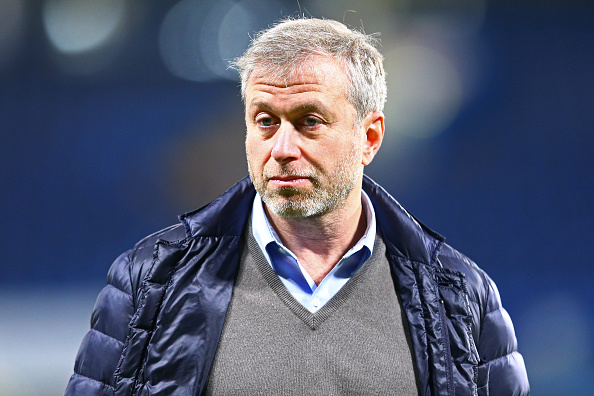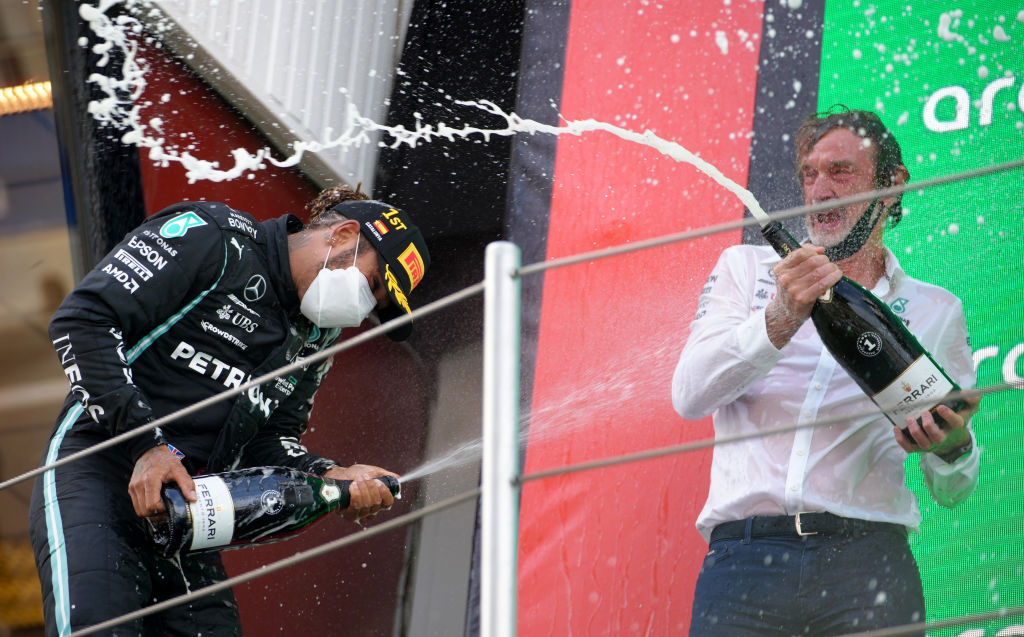Clock ticking on Roman Abramovich after he puts Chelsea up for sale

Chelsea owner Roman Abramovich has put the Premier League club up for sale – but faces a race against time to find a buyer amid the continued threat of sanctions.
Abramovich has hired US bank the Raine Group to advise on a deal and is believed to want £3bn for the reigning European champions, who he paid £140m to acquire in 2003.
Swiss billionaire Hansjorg Wyss said he had been approached about making an offer, while more likely suitors could include Sir Jim Ratcliffe and US private equity.
Prime Minister Boris Johnson yesterday came under renewed pressure to impose sanctions on Russians in relation to the invasion of Ukraine.
Such a move could see Abramovich’s UK assets, including Chelsea, frozen and the mere threat means there is greater urgency to strike a deal.
“If Abramovich really has decided to dispose of Chelsea, then the clock is ticking on the deal,” said Simon Chadwick, Global Professor of Sport at Emlyon Business School.
“If sanctions are imposed upon him then he must agree the club’s sale quickly. If he can conclude the deal before sanctions come, then there are several prospective buyers who may be interested.”
Who could buy Chelsea from Abramovich?
Ratcliffe, the British founder of chemicals group Ineos, is worth around £12bn and was credited with interest in buying Chelsea in 2018.
The 69-year-old’s sporting portfolio includes French football club Nice, cycling and sailing teams and a stake in Mercedes Formula 1.
Interest is anticipated from the US, where investors have shown increasing appetite for investing in European football, perhaps through a fund or special purpose acquisition company.
Abramovich’s hiring of the Raine Group, which advised Silver Lake on its investment in City Football Group, has encouraged speculation about American bids.
US billionaire Todd Boehly, who owns a minority stake in the LA Lakers and LA Dodgers, is reported to be open to reviving his interest in Chelsea.
“State interest could come from, for example, Qatar as investors from this country remain open to expanding their portfolio of overseas sport investments,” said Professor Chadwick.
“And we shouldn’t discount the possibility of a Saudi Arabian investor showing interest. However, it is unlikely that we will see any Chinese investor, for multiple reasons.”
Any Qatari or Saudi interest could be complicated by their existing state-backed ownerships of Paris Saint-Germain and Newcastle United, respectively. Chinese investment in football, meanwhile, has slowed in line with a change in national policy.
“The problem for any potential buyer is that, the closer Abramovich gets to being sanctioned, the more likely it is that interest in Chelsea will cool,” Professor Chadwick added.
“Prospective investors, brokers of such deals and legal firms that might work on a takeover will be cautious about becoming involved in claims of sanctions busting and aiding or abetting individuals linked to the Kremlin.”

PM under pressure to sanction Russian
Labour leader Keir Starmer yesterday asked in parliament why Abramovich, who has denied being close to Russian president Vladimir Putin, had not been sanctioned yet.
Starmer said: “Roman Abramovich is the owner of Chelsea Football Club and various other high-value assets in the UK. He is a person of interest to the Home Office because of his links to the Russia state and his public association with corrupt activity and practices.
“Last week the Prime Minister said that Abramovich is facing sanctions. He later corrected the record to say he isn’t. Well, why on earth isn’t he?”
Johnson said it was “not appropriate for me to comment on individual cases at this stage”.
Abramovich, who is owed £1.5bn by Chelsea, attempted to hand “stewardship and care” of Chelsea to the club’s charitable foundation on Saturday.
But that move was held up as the foundation’s trustees sought legal advice and, if a quick sale can be agreed, may prove unnecessary.
It has also been suggested that the reluctance of some cryptocurrency platforms to freeze Russian assets could bring individuals or companies from that sector to the table.
“Whilst it might seem like the stuff of fantasy,” said Professor Chadwick. “We are entering the realms of business being transacted in environments that are challenging to govern, regulate and sanction.”
Chelsea and the Raine Group did not respond to requests for comment.
